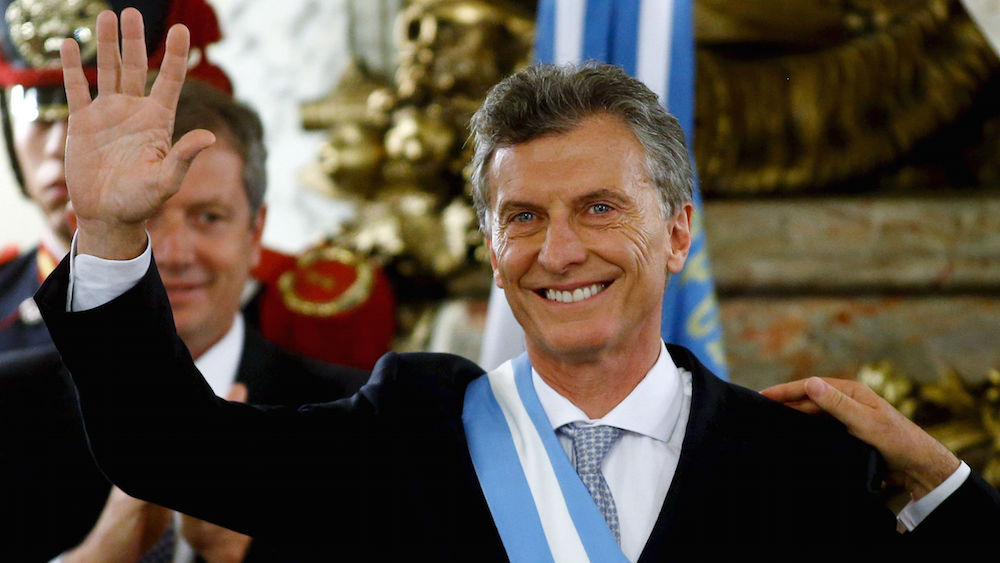As Europe turns its eyes to a revitalized Argentina, both Brussels and Buenos Aires need to foster long-term engagement.
Since being elected last November, Argentina’s new right-of-center president Mauricio Macri cannot complain about a lack of international attention – most of it welcome, some of it unwelcome, as his outing last week in the “Panama Papers” as a former owner of an offshore company. The United States and the International Monetary Fund have already made overtures to the business-friendly former mayor of Buenos Aires who ended twelve years of the leftist governments of Néstor and Cristina Kirchner; US President Barack Obama, on a state visit recently, even demonstrated that he knows how to tango.
Does the EU, too? Given sanctions and counter-sanctions with Russia and stalled TTIP negotiations with the US, intensifying relations with Latin America’s third-largest economy would make a lot of sense. A large EU footprint would also contribute to Western efforts to compete with China’s growing influence and investment in Latin America. Argentina, a major soy exporter, is mainly exporting to China, while Beijing, for its part, has made the most of the West’s absence through sizeable agriculture-based land grabs and multi-billion dollar investments in sectors like nuclear power. Now is the time for the EU to seize this opportunity if it hopes to remain globally competitive amidst the uncertainty within the region.
In Macri, Europe should find an eager partner. He has wasted no time implementing campaign pledges, such as allowing the Argentine peso to float after years under government control, making significant budget cuts, and removing long-standing subsidies. But these immediate reforms are small compared with ending a 14-year-long debt battle with creditors, following Argentina’s $100 billion default of 2002, that has made the country persona non grata in the international credit community.
Since Macri’s election the Argentine government has reached an agreement with creditors, and US District Court Judge Thomas Griesa conditionally lifted a 2012 injunction which had declared Argentina to be in default: The country would be able to return to the credit markets if its parliament repealed the Padlock Law (ley cerrojo), which caps, or “padlocks”, the amount that can be paid to creditors, and the Sovereign Payment Law, a 2014 Kirchner-led attempt to skirt injunctions through backdoor payments to creditors via France.
Remarkably, the congress accomplished this task in March, well before the court-approved payment deadline of April 14, with consensus between Macri’s Cambiemos coalition and the majority Peronists, in both the Senate and Lower House. As a result, Argentina is paying the last holdouts with a settlement of $4.65 billion, roughly 25 percent less than initially desired by the bondholders. To raise funds to make the payment, the legislative deal included an issuance of new bonds worth $12.5 billion. Finally, Argentina can move on from this controversial chapter of its recent history.
Leading up to and after the deal, Argentina has received positive signals on the global engagement front. In addition to the US president Macri has welcomed French President François Hollande, Italian Prime Minister Matteo Renzi, and the European Parliament’s Committee on Foreign Affairs. Its Chair, Elmar Brok (from Germany), heaped praise on Macri’s economic agenda and expressed optimism regarding the prospects of finally concluding the EU-Mercosur trade agreement (negotiations started back to 1999).
However, Macri’s economic task at home is daunting. His government must lower inflation rates, which now hover around 30 percent – a major concern, given that the country’s governors are battling with cash shortages and need funding for infrastructure improvements in their provinces. Also, he must sell his pro-growth agenda as one that can benefit everyone – not just the Argentine elite, as in pre-Kirchner days.
Internationally speaking, Macri’s administration should take the lead on the fledgling EU-Mercosur trade agreement. During the last formal round of talks in 2012, the agreement was stymied by France and Ireland over fears of what agriculture competition posed by the Mercosur bloc (Argentina, Brazil, Paraguay, Uruguay, and Venezuela) could mean for their farmers. An agreement would have major implications, as the EU is Mercosur’s largest trading partner, and Mercosur is the EU’s sixth. Brazilian President Dilma Rousseff is currently beleaguered by scandals and calls for impeachment, and Macri could use this as an opportunity to reinsert Argentina, a major food exporter, as a lead negotiator. As Brock observed during his visit, “For the first time, Argentina is becoming a stronger protagonist than Brazil in these negotiations.”
The agreement is a high priority for both sides. It was a major topic discussed during the Macri administration’s meetings with EU Foreign Affairs and Security High Representative Federica Mogherini in March. The results of an exchange of proposals between the two trade blocs, scheduled for early April in Brussels, could set the tone for the implementation of Argentina’s bilateral trade agreement with the United States, the framework of which had been agreed upon during Obama’s visit. Both agreements will improve Macri’s ability to foster firmer ties with the West, incentivizing all sides to stay engaged.
A new outlook in Argentina would also benefit a few European powers in particular, as it would offer an opportunity to export more than trade-related goods. In meetings with Argentina Foreign Minister Susana Malcorra during her visit in March, German Deputy Foreign Minister Maria Böhmer highlighted vocational educational training, scientific research, and culture as areas of great interest. Argentina is one of few places outside of Europe with schools compatible with Germany’s dual system, running parallel tracks of vocational education and apprenticeship training. With a large workforce skills gap prevalent on both sides of the Atlantic, this could be Germany’s most significant imprint on Argentina’s economy.







